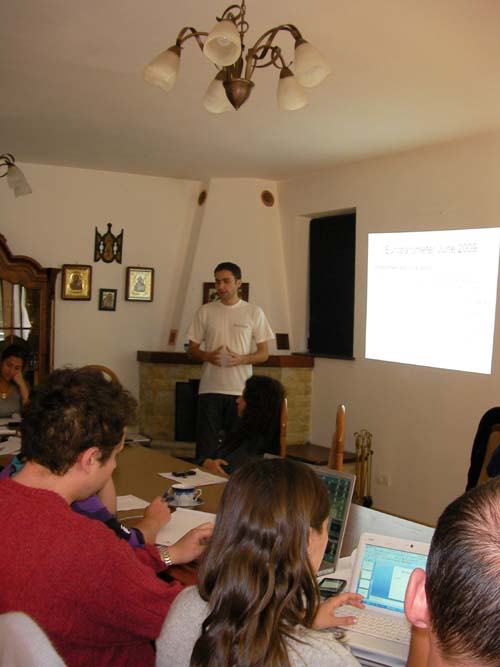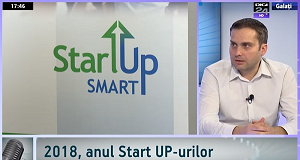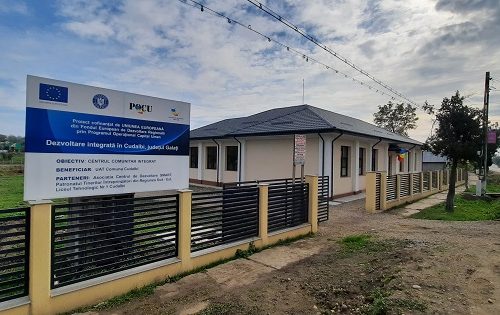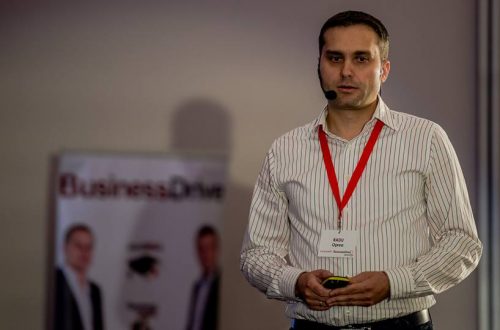Aspen’s Young Leaders Program, three days of policy ideas
 Three more days into Aspen’s Young Leaders Program have passed with intense and hot debates over issues like energy efficiency, EU funds and bureaucracy, education for the EU labor market, economic and social effects of political instability in Moldova, immigration, social rejection, gender issues, health care, leadership in politics, a fair justice system, freedom of press and speech, and civil society.
Three more days into Aspen’s Young Leaders Program have passed with intense and hot debates over issues like energy efficiency, EU funds and bureaucracy, education for the EU labor market, economic and social effects of political instability in Moldova, immigration, social rejection, gender issues, health care, leadership in politics, a fair justice system, freedom of press and speech, and civil society.
Here’s a list of facts that we discussed and recommendations that we brainstormed:
- In the residential sector we use 180-250 Kwh of energy, when for the same level of well-being we could use 15-25.
- Gas resources will be exhausted in 60 years.
- Energy infrastructure is from the 1950s, we supply heat with equipment that is over dimensioned.
- It is more efficient to build new facilities than to use money to solve the environmental impact of the existing power plants.
- Demand side for energy solutions: co-generation and district heating, improve transportation from the source to the buildings, rehabilitation of buildings (they use 40% of energy consumption).
- Buildings are not rehabilitated: from 80,000 blocks in Romania, only 100 have been rehabilitated.
- There are 80% losses in energy transportation; we need a long-term plan, isolate all buildings because we all pay the losses, the opportunity cost for rehabilitation is higher than rehabilitating the district heating system; the solution stays is the distributed generation, use small energy resources for a couple block of flats.
- Romania does not have a priority to use the structural funds, hence the need to create structured dialogue that would lead to prioritization.
- Problems to access EU funding: economic crisis, companies can’t afford development projects; credit drought, banks do not finance EU-approved projects; bureaucracy procedure is still too cumbersome; logistically, there is too little personnel, low salaries, too little money.
- A priority for structural funds could be the Romanian transportation infrastructure.
- Education still faces inefficient management, corruption and nepotism, incompetence of human resources, lack of civic and social education, lack of communication between management and the civil society.
- Solutions in the field of education include: decentralization of education, curriculum modernization, better infrastructure, performance management, feedback mechanisms, external audit, supply and demand synchronization with the labor market, primary school focused on core values, skills and abilities assessment, friendly education environment, after school programs, social support projects – education vouchers, “gifted education” and differentiated education for the gifted, career services.
- Education is not flexible and does not adapt, because of the fixed structures that it needs to function.
- We don’t have a teaching method that allows the student to develop other skills besides knowledge.
- We need to reward teachers; be able to fire teachers if not competitive; competitive market place for teachers, too strong unions; teachers have to relate to kids.
- Need friendly and pleasant environment in schools; sports infrastructure; parental lessons.
- Professors and students should also keep up to date with the latest developments in their fields of study or interest.
- Regarding immigration, when settling down in another country immigrants need to have a correct attitude: respect the hosting culture, administration system and laws, not be a burden to that society; have an ethical behavior.
- We could promote better collaboration between mother rand host countries and conduct information campaigns.
- Immigration becomes an issue when numbers grow high; some countries need immigrants; country should determine its need and a quota for immigrants.
- The laws of the hosting country are sometimes too weak, immigration process needs to be controlled.
- In the case of social rejection, the higher the trust in the community, the lower the discrimination, the answer is in education policies.
- Gender inequality starts in the family; in Moldova and Romania domestic violence is tolerated.
- In the health sector, regulations are important to have a good private sector in the field; we need managers in hospitals.
- In the case of leadership in politics, we should not wait acting, active citizenship and grass roots activism are important.
















